RESEARCH PROJECTS
+ COVID STORYTELLING PROJECT
Rapid Assessment of the Experiences, Needs, and Recommendations of Diverse Vulnerable Populations during the COVID-19 Pandemic
+ COVID STORYTELLING DISSEMINATION: RECENT FINDINGS & UPDATES
Recent Findings on Racism, Sexual and Reproductive Health Issues During the Pandemic
Several manuscripts arising out of COVID-19 Task Force research have been published in The Rapid Assessment of COVID Evidence (RACE) Series in Ethnicity and Disease. The graphic below and the RACE series papers shine light on the spectrum of reproductive justice needs during the pandemic. In order to fully realize reproductive justice, structural determinants of equity must be considered across the reproductive lifespan, not simply during pregnancy or when considering maternal and infant morbidity and mortality disparities. Access to abortion, access to high quality education in childhood, access to safe and stable housing should all be considered good public health practice for improving inequities in maternal and infant mortality. And the bar needs to be higher than "not dying" for Black, Indigenous, and People of Color when it comes to measuring reproductive health. We hope that the findings of these papers contribute to the field in a meaningful way by opening space for conversations on how structural racism impacts reproductive health for communities of color and ways to achieve true wellbeing, abundance, and intergenerational thriving.
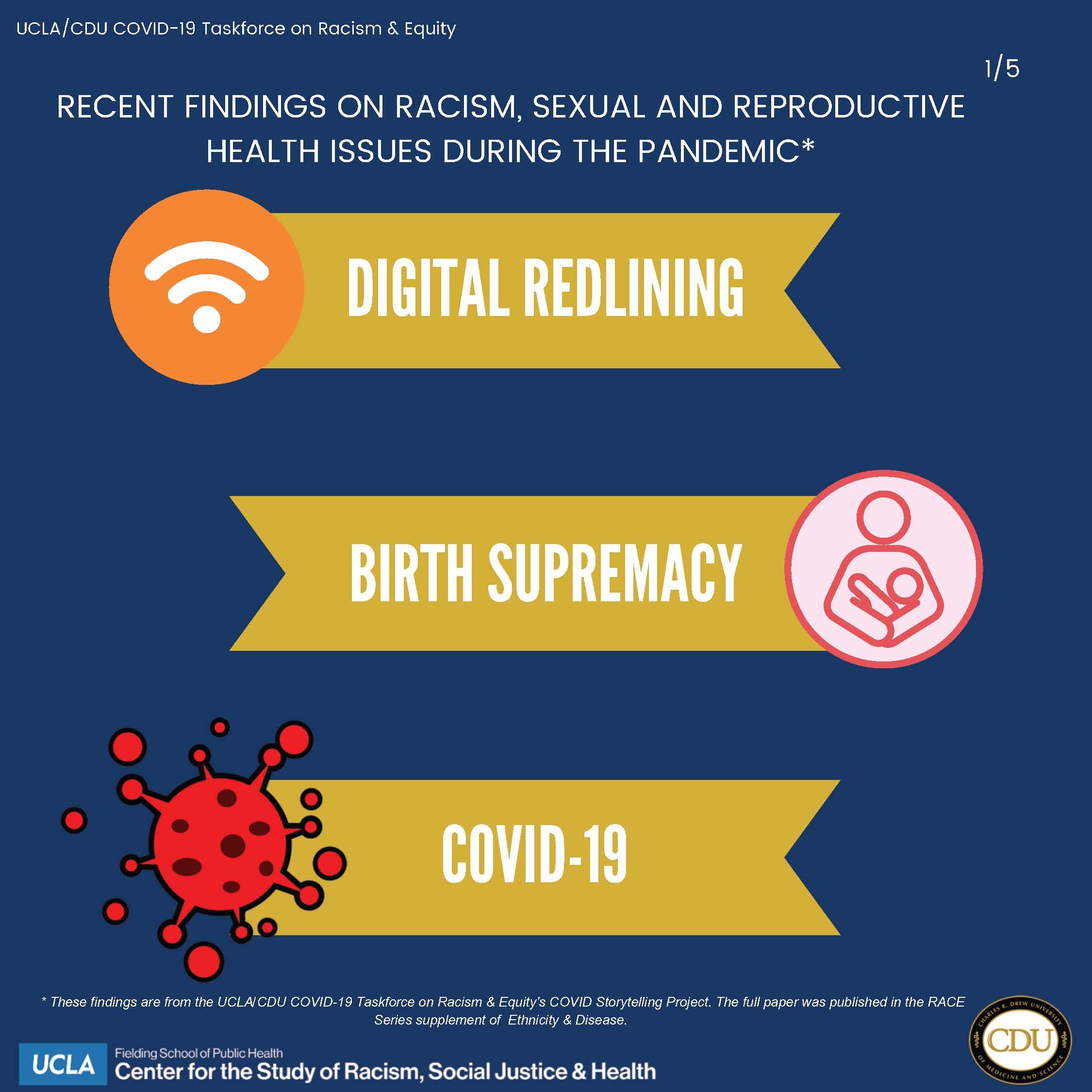
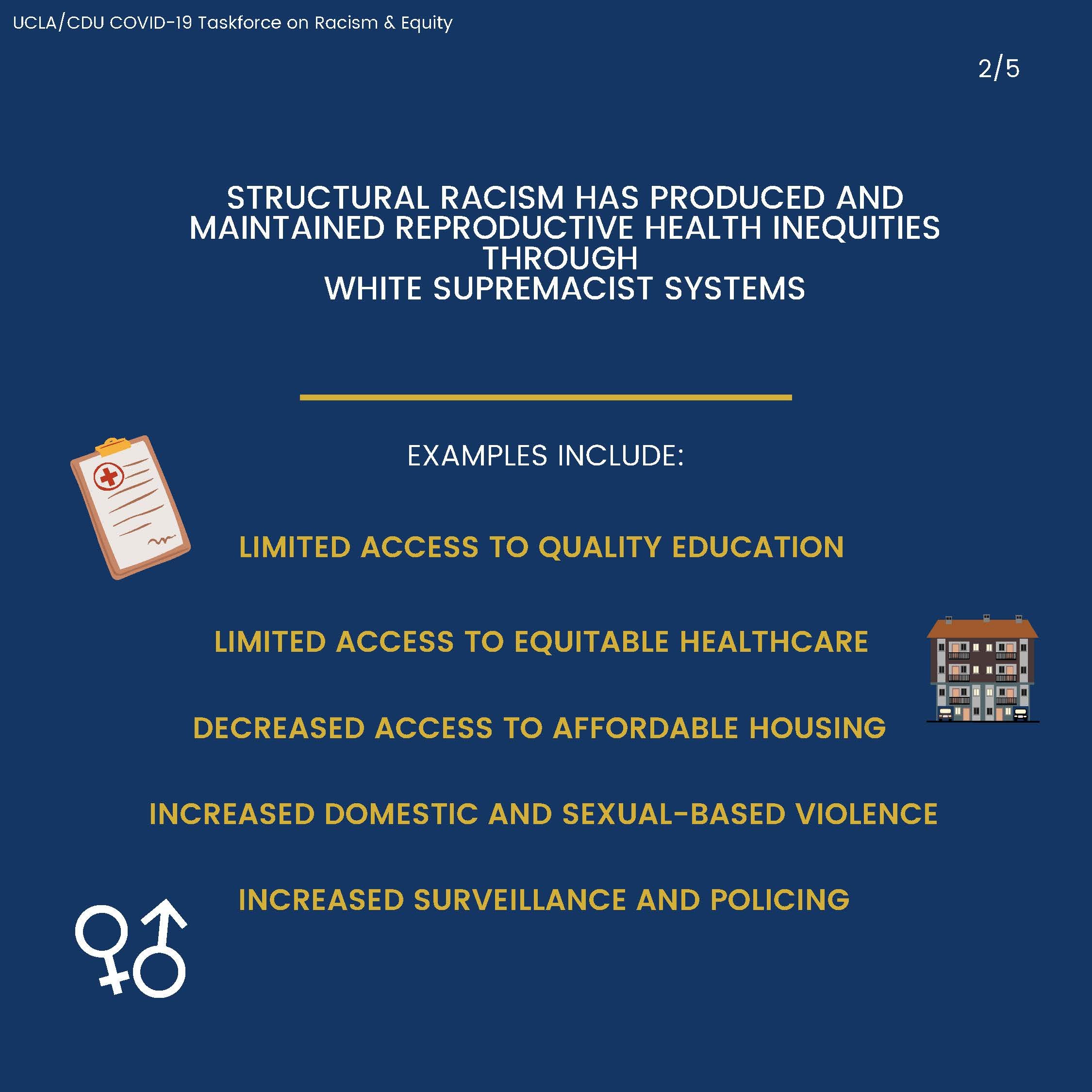
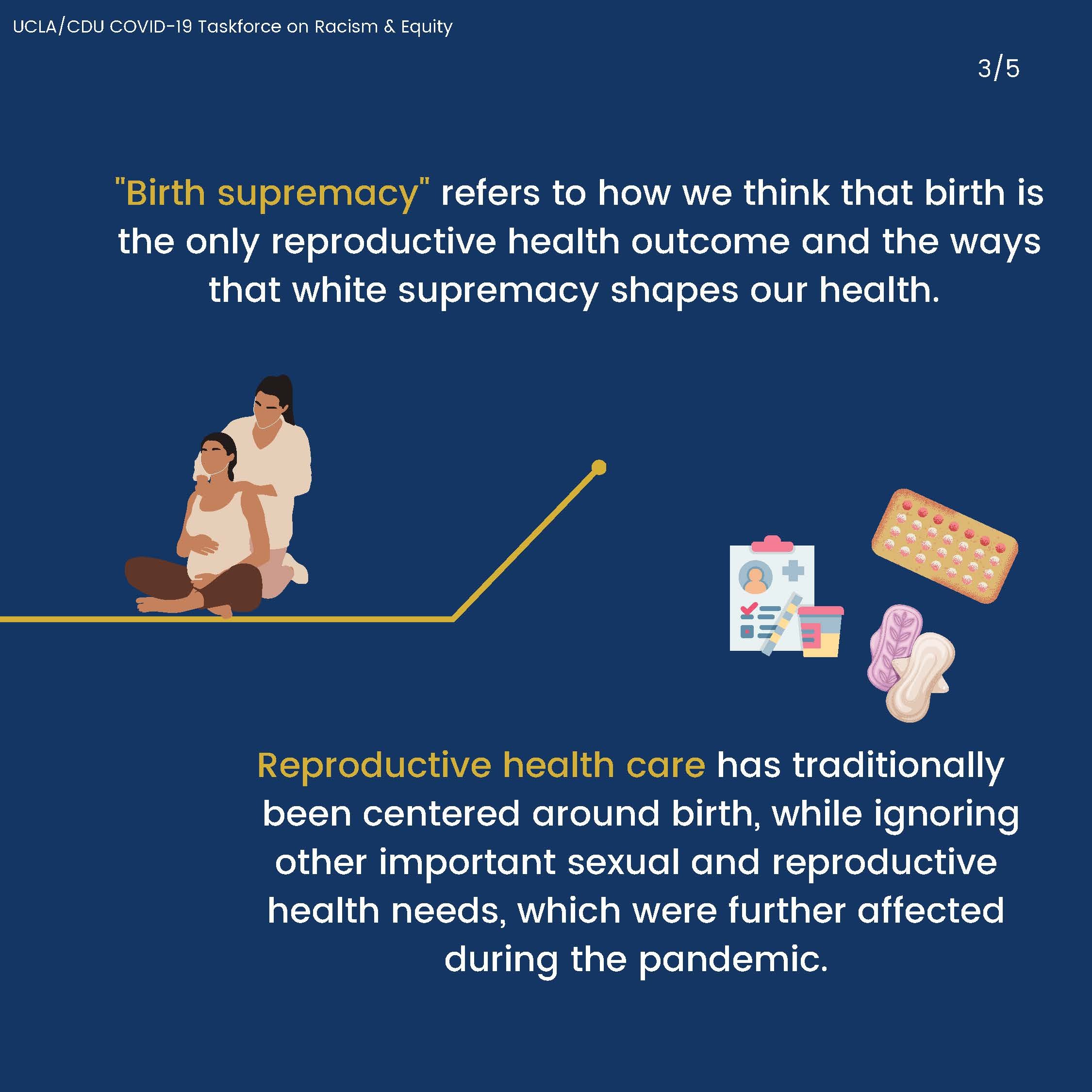
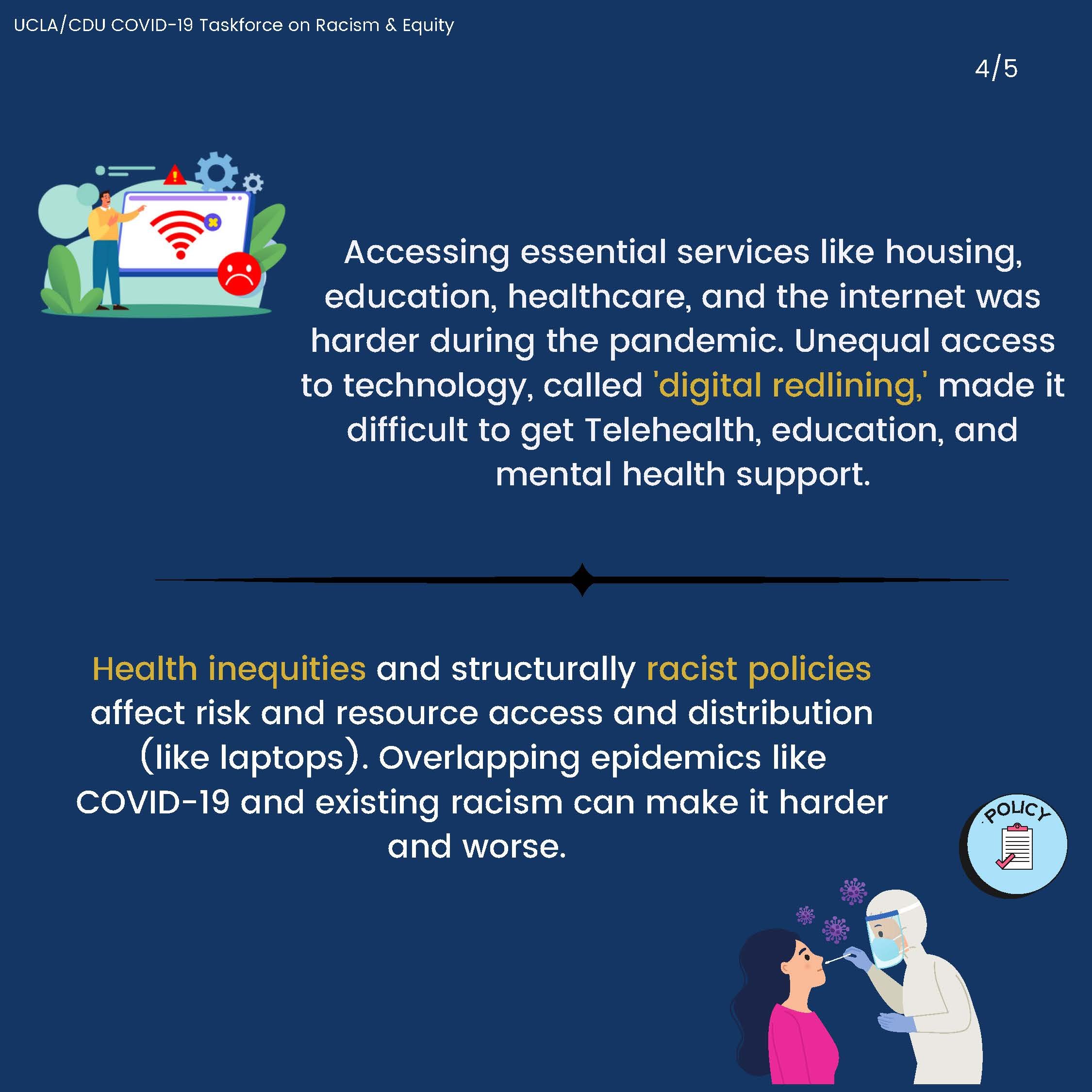
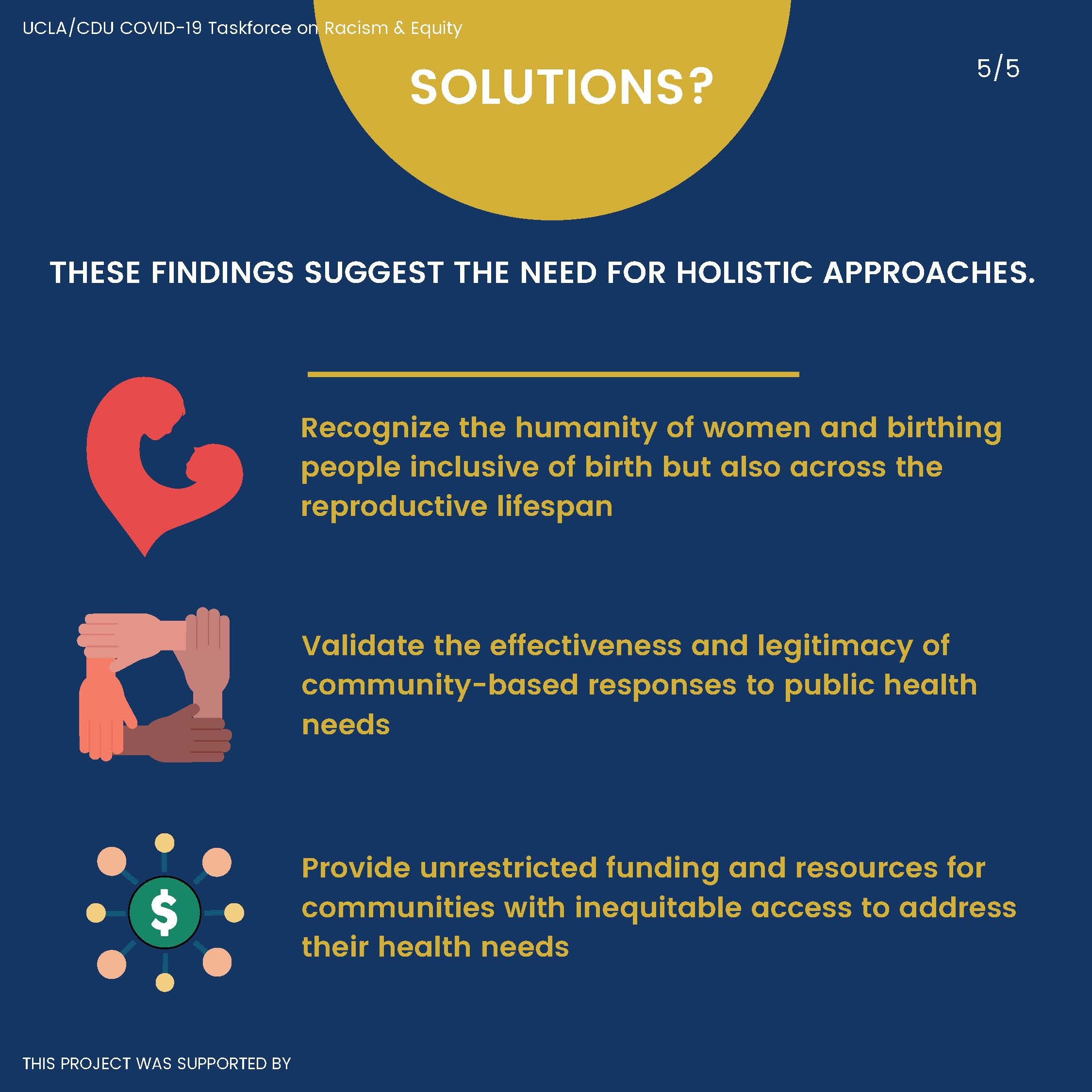
Publication of The Rapid Assessment of COVID Evidence (RACE) Series in Ethnicity & Disease
The Rapid Assessment of COVID Evidence (RACE) Series was published in Ethnicity and Disease because of its commitment to ensuring peer-reviewed findings on health equity are freely available to the public. While these links may introduce you to the RACE Series, please consider supporting the journal by accessing the articles from it directly. This improves the journal’s ability to track key impact metrics, such as how many times an article has been viewed or downloaded. Support for the Rapid Assessment of COVID Evidence (RACE) Series was provided in part by the Robert Wood Johnson Foundation (Grant #79361). The views expressed here do not necessarily reflect the views of the Foundation.
Ethnicity & Disease, Volume 32, Issue 1, Winter 2022
Introducing the Rapid Assessment of COVID Evidence (RACE) Series
Ethn Dis. 2022; 32(1):69-72; doi:10.18865/ed.32.1.69
Ethnicity & Disease, Volume 32, Issue 2, Spring 2022
Commentary on Series 1: Rapid Assessment of COVID Evidence (RACE) Articles in this Issue
Ethn Dis. 2022;32(2):149-150; doi:10.18865/ed.32.2.149
Ethn Dis. 2022;32(2):151-164; doi:10.18865/ed.32.2.151
What Happens When the Crisis Seemingly Never Ends? Perspectives in Health Communication
Ethn Dis. 2022;32(2):165-168; doi:10.18865/ed.32.2.165
Ethnicity & Disease, Volume 32, Issue 3, Summer 2022
Introduction to the Summer 2022 Issue of the RACE Series
Ethn Dis. 2022;32(3):239-242; doi:10.18865/ed.32.3.239
Integrated Methods for Applying Critical Race Theory to Qualitative COVID-19 Equity Research
Ethn Dis. 2022;32(3):243-256; doi:10.18865/ed.32.3.243
Ethn Dis.2022; 32(3):257-264; doi:10.18865/ed.32.3.257
Ethnicity & Disease, Volume 32, Issue 4, Autumn 2022
Maternal and Infant Health Inequities, Reproductive Justice and COVID Addressed in RACE Series
Ethn Dis. 2022;32(4):351-356; doi:10.18865/ed.32.4.351
Ethn Dis. 2022;32(4):357-372; doi:10.18865/ed.32.4.357
Ethnicity & Disease, Volume 33, Issue 1, Winter 2023
Commentary: Public Health Surveillance and Health Equity: Cause for Concern
Ethn Dis. 2023;33(1):61-62; https://doi.org/10.18865/2022-2024
An Equity-Based Scoring System for Evaluating Surveillance-Related Harm in Public Health Crises
Ethn Dis. 2023;33(1):63-75; https://doi.org/10.18865/2022-2022
Ethnicity & Disease, Volume 33, Issue 2, Summer/Autumn 2023 (in press)


